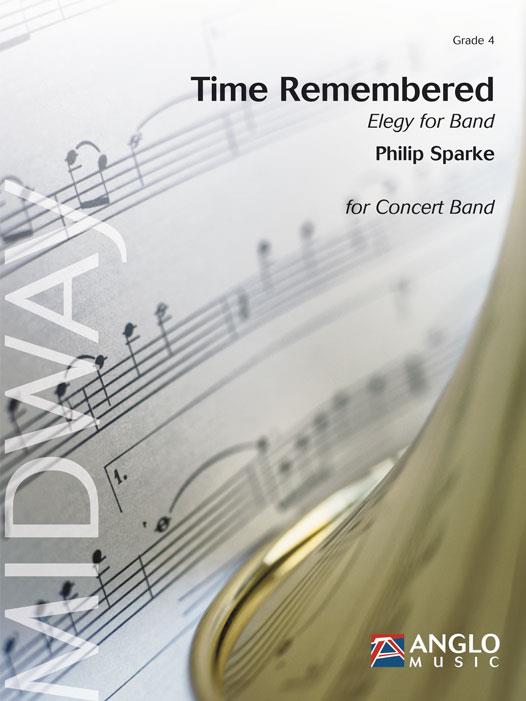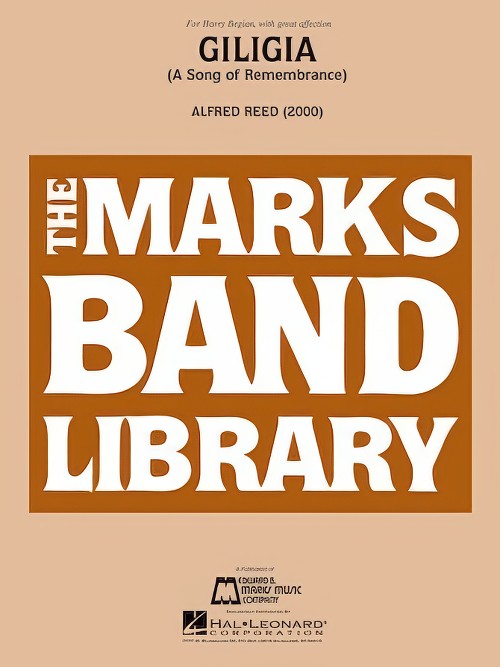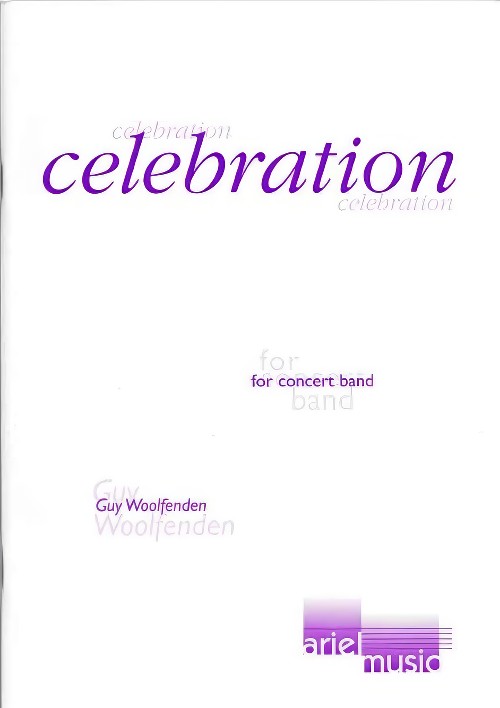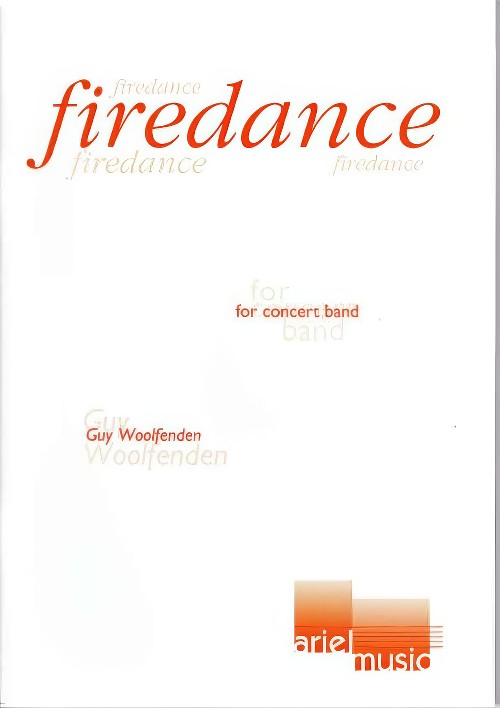Results
-
 £152.99
£152.99Time Remembered (Concert Band - Score and Parts) - Sparke, Philip
The initial idea was for a millennium piece, which it is, but rather than add to the many celebratory pieces that have understandably been written to salute the 3rd millennium, Philip Sparke thought it would perhaps be appropriate to think about the aspects of life that are constantly with us (such as faith and philosophy) rather than the exciting changes that the year 2000 has undeniably wrought. This calm meditative work will bring a moment of serenity and reflection to any concert.Duration: 9.00
Estimated dispatch 7-14 working days
-
 £68.00
£68.00Giligia (A Song of Remembrance) (Concert Band - Score and Parts) - Reed, Alfred
Based on a simple Armenian folk song, this inspiring setting is dedicated to Dr. Harry Begian who conducted its first American performance at the Midwest Clinic in Chicago, December 2000. The haunting melody is developed in magnificent fashion building to a dramatic full band climax then tapering to a quiet ending.
Estimated dispatch 7-14 working days
-
 £76.99
£76.99American Pie (Concert Band - Score and Parts) - McLean, Don - Sebregts, Ron
Don McLean's success is largely due to the remarkable song American Pie released in 1971. In 2000 American Pie topped the charts again, this time recorded by Madonna when her version achieved number 1 status almost everywhere in the world.Duration: 2:30
Estimated dispatch 7-14 working days
-
 £115.00
£115.00CELEBRATION (Concert Band) - Woolfenden, Guy
Three Movements:RondoValseTristeMarchThis work was commissioned as a celebration of the life and work of Murray Slater, the inspirational musical director of Derbyshire City & County Youth Wind Band, who sadly died in 2000. Murray was greatly loved and respected in the wind and brass band world, was a fine trumpeter and teacher, and was universally known as "Man of Music".Celebration attempts to capture facets of Murray's personality. The Rondo's theme has a witty rhythmic twist to it, the Valse Triste features a solo trumpet, and the concluding March contrasts a Prokofievian theme with a slower "big tune" that attempts to match the stature of the man.The first performance took place on 12th July 2002 in Chesterfield with the Derbyshire City & County Youth Wind Bands, conducted by the composer.Duration 15 minutes
Estimated dispatch 7-14 working days
-
 £174.99
£174.99Excelsior Wind Band Set (Score & Parts)
Excelsior was composed by Rob Goorhuis in the year 2000 on the occasion of the 75th anniversary in 2001 of the Amsterdam-based concert-band Jong Excelsior. Excelsior is a one-movement fantasia, consisting of contrasting themes. The first theme (the Excelsior theme) is characterized by angular figures moving in an upward direction. The second theme is playful and humorous in nature. Rob Goorhuis, who was born and bred in Amsterdan, may even have utilized memories of his own juvenile pranks in this second theme. The third theme, which is introduced by the cor anglais is melancholy and melodious. The elements mentioned above interchange in a thoroughly captivating manner, which ultimately results in an attractive composition fully capable of adding lustre to an anniversary. Excelsior werd door Rob Goorhuis gecomponeerd ter gelegenheid van het 75-jarig jubileum van muziekvereniging Jong Excelsior te Amsterdam. Excelsior is een doorgecomponeerde fantasie, bestaande uit met elkaar contrasterende themas. Het eerste (Excelsior)thema wordt gekenmerkt door hoekige stijgende figuren. Het tweede thema is speels en humoristisch van karakter. Rob Goorhuis, geboren en getogen Amsterdammer, verwerkte hierin wellicht herinneringen aan de kwajongensstreken uit zijn jeugd in Amsterdam. Het derde thema, ge?ntroduceerd door de Engelse hoorn, is melancholiek en zangerig. Genoemde elementen wisselen elkaar op boeiende wijze af, zodat een attractieve compositie is ontstaan. Dit werk is opgenomen in het Klein repertorium, harmonie - 1e divisie 12:00
Estimated dispatch 7-14 working days
-
 £140.00
£140.00FIREDANCE (Concert Band) - Woolfenden, Guy
Firedance was commissioned by Warwick Castle for one of its celebrated annual fireworks concerts at the Warwick and Leamington Festival. The first performance was given by the Philharmonia Orchestra conducted by Martyn Brabbins on July 1st 2000.Keith Allen, musical director of Birmingham Symphonic Winds, heard the piece at Warwick Castle, and commissioned a new arrangement for BSW's 10th anniversary concert on 16th November 2002 at the CBSO Centre, Birmingham, when it was conducted by the composer.Firedance starts with jagged rhythms in a minor tonality, and apart from a final accelerando, keeps the same pulse for its near ten-minute span, becoming gradually more celebratory, major-key and melodic.This new version for concert band is dedicated to all members of Birmingham Symphonic Winds with great affection. - GW
Estimated dispatch 7-14 working days
-
 £84.99
£84.99Praise to You Wind Band Set (Score & Parts)
The year 2000 is a jubilee year for the Roman Catholic Church. To celebrate this the Vatican Church commissioned Jean-Paul Lecot to compose a hymn for the festivities. The composition, 'Christ hier, Christ aujourd 'hui', became well known through the Vatican-approved CD recording made by Andrea Bocelli. Roland Kernen has produced this professional arrangement which retains all the beauty of the original. 0:03:30
Estimated dispatch 7-14 working days
